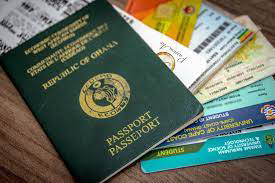The technical partners of the National Identification Authority, in charge of producing the Ghana card, have uncovered thousands of fake national IDs.
According to Margins Group, they made this discovery after harmonizing data from the Ghana card with other national identity documents including passports, health insurance cards, driver’s licenses, and others.
Speaking to a joint parliament committee of Subsidiary Legislation and the Defence and Interior, the group’s Chief Software Development Officer, Andrew Asamoah, said that this development threatens the credibility of these national ID documents.
“We found about 45,000 passports which do not exist in the passport database. We found about 130,000 NHIS cards which do not exist and another 45,000 driver’s licenses which do not exist. The number of SSNIT cards is about 166,000,” he said.
Mr Asamoah noted that “these documents were presented to NIA during the registration process. We couldn’t detect this in the field because we operate a secure database, the machine can only talk to NIA.
"So after collecting the information, we then do a connection to these systems to validate what has been collected and that is where we see this information.”
Additionally, in the case of voters’ ID cards, he revealed that some card numbers were used for multiple Ghana card registrations by different people at different locations and times in the country.
“There are a lot of issues with the silos of data that we have and so this shows that the Ghana Card is helping to clean up these silos,” Mr Asamoah said.
Meanwhile, Margins Group CEO, Moses Baiden, denied assertions that they have been selling citizen’s data to other parties insisting that the government owns the information and it is accessed solely by the NIA.
“It is illegal for us (Margins Group) to have the data. It is the NIA’s job. The central databases are all owned by the government of Ghana and we work with the government of Ghana as a technical partner...so nobody should be confused as to who owns the Ghana card or the national ID system, it is the government of Ghana,” he explained.
Ghana Card
The National Identification Card (GhanaCard) is a valid verification document issued by the National Identification Authority (NIA) to Ghanaians and permanently resident foreign nationals living everywhere for identification. It is the property of the Government of Ghana.
The card bears personal information about the individuals whose identity can be verified at all times.
The card contains basic identification information including a photograph of the cardholder, along with a name, date of birth, height, and a personal identification number that has been randomly generated and assigned to the holder and has an expiry date.
The NIA deploys cutting-edge technology that incorporates several layers of security features- physical, logical, and technical that make the cards difficult to forge and protect the personal information stored on the card. These features allow only authorized persons to read the information and bona fide owners to use the card for purposes of identification.
In 2020, The NIA embarked on a national registration to get as many Ghanaians registered as possible. Later they set up offices across the country where those who missed out on the mass registration can get theirs.
Following the issuance of the cards, the National Communications Authority embarked on a mandatory sim registration enforcing a Ghana card-only rule as a registration document.
In 2023, the Electoral Commission called for the sole use of the Ghana Card as the document for the voter registration exercise.
The Chairperson of the Electoral Commission, Jean Mensa, had said that the using Ghana Card was the surest way to ensure the integrity of the voters register.
She said the guarantor system had outlived its usefulness.
However, this was opposed by many including Members of Parliament who argued that Ghanaians without the Ghana Card would be disenfranchised in the 2024 general elections. The proposition was later scrapped.
Credit: myjoyonline.com

